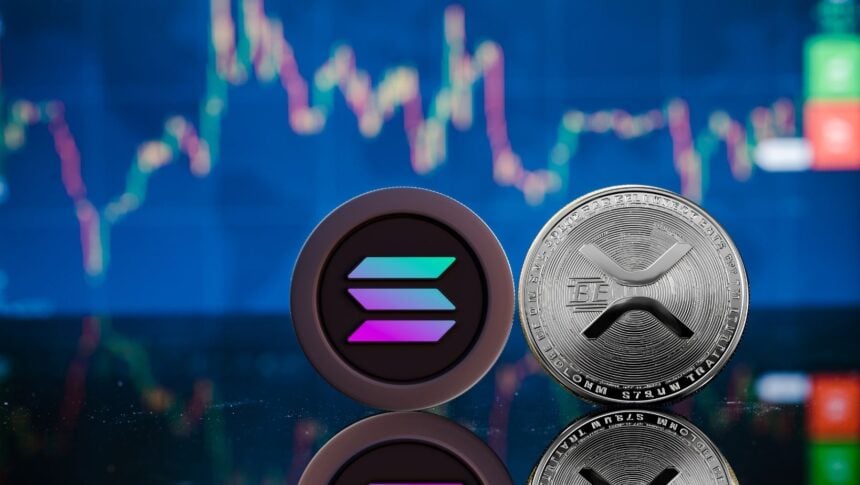Hashdex is expanding its Nasdaq-listed crypto ETF to include XRP and Solana, marking one of the first U.S. fund adjustments under the Securities and Exchange Commission’s new generic listing framework for spot commodity products.
In a filing on Thursday, the Hashdex Nasdaq Crypto Index US ETF, ticker NCIQ, said it now tracks a basket of five tokens: bitcoin, ether, XRP, solana, and stellar, with changes implemented in line with the underlying index and subject to quarterly rebalancing.
The update relies on newly approved exchange standards that permit broader crypto exposure without case-by-case product reviews.
The move follows the SEC’s September 17 decision to let major exchanges adopt generic listing standards for spot commodity trust shares that hold digital assets.
The change allows exchanges to list qualifying crypto products that meet preset criteria instead of navigating lengthy, individualized approval processes.
Hashdex framed the expansion as a natural step for a diversified, rules-based product tied to a Nasdaq crypto index.
“This signifies a major milestone in meeting the needs of U.S. advisors and investors,” Marcelo Sampaio, co-founder and CEO of Hashdex, said in a press release.
The firm noted that NCIQ began in February with bitcoin and ether before broadening its scope as regulatory conditions evolved.
The index methodology screens constituents on criteria such as liquidity and market representation, and the trust will adjust holdings to mirror the benchmark over time.
The ability to add assets like XRP and Solana reflects how the new standards clarify what qualifies for exchange listing, while giving issuers a clearer playbook for updating multi-asset funds as eligibility changes.
Hashdex also disclosed that it is filing a prospectus supplement to reflect the shift. Investors have anticipated a wave of product launches and tweaks since the standards were approved.
The change is expected to shorten the path to market for ETFs tied to coins beyond bitcoin and ether, an opening that could accelerate competition across issuers and indexes as they chase demand for diversified crypto exposure.
Industry participants say the revised approach could reduce timelines to about two to three months for qualifying products, though actual speed will depend on how quickly issuers meet surveillance, custody, and operational requirements.
The expansion pitches a simple way to hold multiple large-cap crypto assets in one tradable wrapper for U.S. advisors and self-directed investors.
That can reduce the need to pick individual tokens, and it may mitigate headline risk tied to any single asset. It also underscores how regulation is reshaping the market structure of crypto ETPs.
Under the generic standards, exchanges can list commodity-based trust shares that satisfy predefined conditions, which should bring more consistency to how multi-coin products get built and maintained.
For NCIQ, that means eligibility is anchored to the Nasdaq benchmark and holdings can change at scheduled rebalances rather than waiting on bespoke approvals.
Hashdex emphasized that shares trade at market prices and that the product is structured as a commodity-based exchange-traded product rather than a 1940 Act fund, a distinction investors should consider when comparing fees, protections, and tax treatment.
Even so, the broader takeaway is that regulated, exchange-traded access to a wider set of crypto assets is gaining traction, and the competitive landscape for multi-asset offerings is likely to intensify as other issuers move to capitalize on the new rulebook.




















